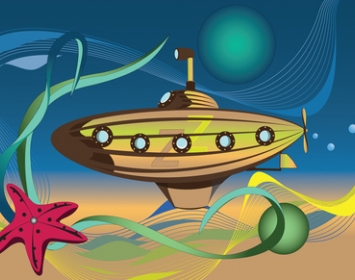Museo Atlantico is Europe’s first underwater contemporary art museum, which is situated just off the coast of Lanzarote, Canary Island, Spain. The first phase of this unique museum was deployed by internationally acclaimed sculptor Jason deCaires Taylor in February 2016.
British artist Taylor creates underwater living installations, offering viewers mysterious, ephemeral encounters and fleeting glimmers of another world where art develops from the effects of nature on the efforts of man.
Museo Atlantico is a unique museum featuring a series of sculptural installations 12m beneath the ocean’s surface.
It is accessible to snorkelers, divers and observers through glass bottom boats, and is due to be completed by December 2016. A total of 10 galleries are expected to be ready by year-end.
The project is designed to create a large-scale artificial reef that the local fish species and marine biomass can go on to inhabit and feed off of.
The concrete figures represent the desperate refugees, selfie-taking tourists and a hybrid of flora and humans that will be transformed over time and indoctrinated into the Lanzarote underwater ‘society’ as do people above on land.
This is the first of its kind in Europe and the Atlantic Ocean, and is expected to stand the test of time to last hundreds of years. But interestingly, as the local marine life adopts the artificial reef as their own, the characteristics of the sculptures themselves will change.
Of the current lot that has already been placed at the bottom of the ocean, the piece called The Raft of Lampedusa — a sculpted boat carrying 13 refugees — is the most striking. According to The Guardian, the artwork is a modern take on Géricault’s 1818 painting The Raft of the Medusa.
According to the sculptor’s website, “by situating his sculptures in clear, shallow, barren areas, Taylor not only replicates the conditions necessary to stimulate coral growth but ensures divers, snorkelers and those aboard glass bottom boats the opportunity to view his works.”
The first phase of the underwater museum is expected to be open to the public at the end of February; the new galleries will be added all through the year.
Can you answer the questions based on the text and the video?
1. Where is Europe’s first underwater museum situated?
2. What material are the sculptures made of?
3. Who can see the sculptures?
4. Where are the sculptures placed?
5. Who do the concrete figures represent?
Answers
1. It is situated just off the coast of Lanzarote, Canary Island, Spain.
2. They are made of concrete.
3. Snorkelers, divers, observers through glass-bottom boats.
4. They are 12m beneath the ocean’s surface in shallow, barren places.
5. They represent desperate refugees, selfie-taking tourists and a hybrid of flora and humans.
Vocabulary
underwater | víz alatti |
contemporary art | kortárs művészeti |
to deploy | telepíteni |
internationally acclaimed | nemzetközi hírű |
sculptor | szobrász |
ephemeral | röpke, múló, tiszavirág életű |
fleeting | futó |
glimmer | pillantás |
effort | erőfeszítés |
snorkeler | könnyűbúvár |
diver | búvár |
observer | szemlélő, néző |
large-scale | nagyméretű |
artificial | mesterséges |
reef | zátony, szirt |
to inhabit | lakni, élni valahol |
to feed off | táplálkozni valamiről |
concrete | beton |
desperate | elkeseredett, kétségbeesett |
refugee | menekült |
to be indoctrinated | belesimulni, részévé válni |
to stand the test of time | kiállni az idő próbáját |
marine life | tenger élővilága |
striking | drámai, feltűnő |
The Raft of the Medusa | Medúza tutaja |
shallow | sekély |
barren | puszta, üres |
aboard | hajón, hajó fedélzetén |






